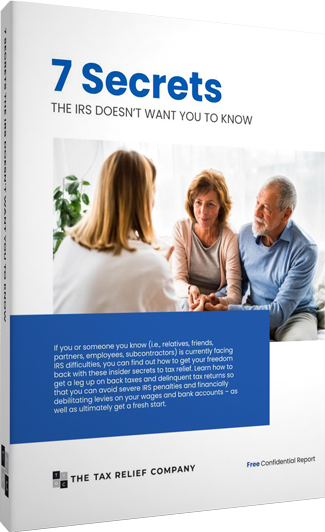The Name of the Game, or How the IRS Deals with Mutiny on the High Seas
“We live in a ‘volunteer’ tax society. Now, what does that actually mean? Many believe that this means they can voluntarily file returns and pay taxes. We call these people tax protestors.”

In the United States, we are required to file and pay our share of taxes. If we don’t, the IRS will come after us.
Tax protestors do not file and pay taxes for a variety of reasons.
- They’re afraid they’ll owe the IRS money and they don’t want to pay
- They can’t afford to pay
- They have multiple sources of income and have become confused
- It’s easy to turn a blind eye when nobody is pushing for them to file
- They got busy and forgot
“I Don’t Know Which Parts of My Income are Taxable”
There is a book, if you’re unfamiliar, called the Internal Revenue Code. In the beginning of the Code, there is a section (§61) that states “all income, from whatever source it is derived, is taxable.” This means that if you earn money from working, a business, earning interest, realizing dividends, under the table, etc., is reportable – and in most cases – taxable.
Required Tax Compliance
You must report your income, your one exemption (two if filing jointly), and the standard deduction.
What is Voluntary Tax Compliance?
You do not have to claim other deductions, exemptions, or even credits. 
Also, you do not have to list your dependents, take mortgage interest, or claim married filing jointly (even if you are married – see this article to learn about filing statuses.)
You do not have to claim credits such as the dependent care credit or the child tax credit.
What about reporting income and expenses?
We have to report all income and all applicable and legal deductions, which could just be the standard deduction, and then compute a tax. If you had federal income taxes withheld (and not social security (FICA) and Medicare taxes), or you had a credit from a prior period, or made estimated tax payments, you may be entitled to a refund of your own money.
There are provisions from the Tax Cuts & Jobs Act that were extended so that taxpayers could claim an exemption. This allows them to not have to pay tax on now-taxable income.
What if I owe taxes?
If you kept your withholdings low, made small estimated tax payments, or didn’t make any to pay for your everyday life, you cannot ignore the IRS when they attempt to collect.
************************************************
Jeffrey Schneider, EA, CTRS, NTPI Fellow has the knowledge and expertise to help you reach a favorable outcome with the IRS. He is the head honcho at SFS Tax Problem Solutions as well as an Enrolled Agent, a Certified Tax Resolution Specialist and Advanced Crypto Tax Expert.
************************************************
Author of the series Now What? Help! Jeff defines and deconstructs IRS notices and clarifies letters and actions the IRS will take to get what they want. He interprets the world of the IRS in a fashion that mixes attention to detail with humor to help you better understand and resolve your tax problems.
The books are available in paperback and eBook on Amazon.
************************************************
For more on SFS Tax Problem Solutions, visit http://sfstaxproblemsolutions.com/
************************************************
738 Colorado Avenue Stuart, FL 34994
************************************************
Phone: 877-355-8010
************************************************
https://twitter.com/SFSTaxAcct/
https://linkedin.com/company/sfs-tax-problem-solutions
************************************************



